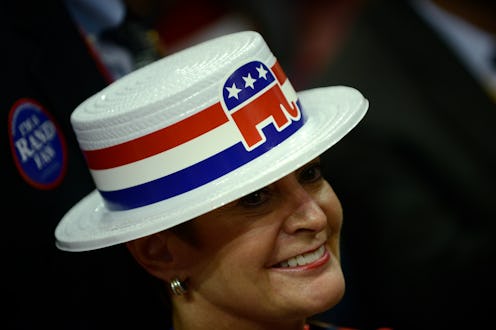News
How You Could Get A Delegate To Switch Their Vote
There’s a significant chance that Republicans will have a contested convention this year, a realization that has just about everybody scrambling to bone up on delegate procedures and convention rules. Right now, much of the talk centers on how many of Donald Trump’s delegates will jump ship once they’re allowed to. But let’s back up and ask a more fundamental question: Why would delegates change their votes at a contested convention in the first place? What specifically might compel a delegate to switch their support?
It’s an important question. If the convention is contested this year, it’ll basically be the most important question, because the answer will play a big role in determining the next president. And as it turns out, there isn’t just one answer — there are a lot of reasons why a delegate might change their support after the first round of voting.
For some delegates, a quid pro quo might be required. Being an unbound delegate at a contested convention is an extraordinarily powerful position to be in, and a lot of delegates won’t be willing to sacrifice that power unless they get something in return. So, what might a candidate offer them in exchange for their votes?
One possibility is a job. The nature of that job would depend on the delegate in question: A sitting governor might demand an executive-level cabinet appointment, while a state senator serving as a delegate could be happy with a deputy position at a statewide agency.
Delegates who don’t already occupy a position of significant authority might simply ask for compensation for their travel costs. Flying out to Ohio and staying in a hotel for a few days costs money, after all, and believe it or not, delegates are expected to pay these bills themselves. If a candidate offers to pick up the tab for travel costs, that might be enough to sway many a delegate’s mind.
If all of this sounds crude and anti-democratic, that’s because it is. But it’s also entirely within the rules: From a legal standpoint, parties are given quite a bit of latitude over how their nominating process works, and there’s no prohibition on this kind of horse trading. As Sasha Issenberg has pointed out, it may even be legal for delegates to literally sell their votes for cash.
But there’s another big reason a delegate might switch their vote: In many cases, the individuals elected to delegate positions already plan to change their vote to a specific candidate if the convention is brokered. This is part of the inside game that the candidates and their campaigns are playing right now. While the country focuses on primary vote tallies, the candidates are quietly working to elect their supporters to delegate positions at the state level in order to boost their chances of winning at a contested convention.
In the vast majority of election cycles, all of this is irrelevant. Normally, a candidate becomes the clear favorite early on, wins the vast majority of delegates through the primary voting process and is anointed the nominee at the convention. But if the party and its voters can’t arrive at such a consensus, there has to be a backup plan. As anti-democratic as it sounds, this is it.
